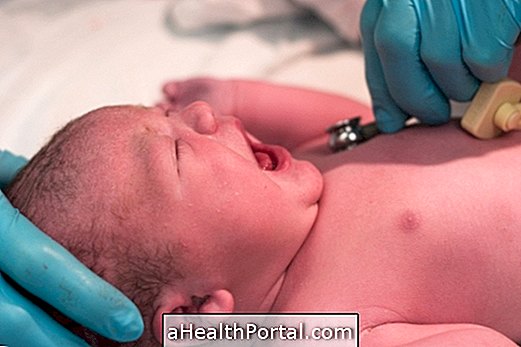Severe mental retardation is characterized by the Intelligence Quotient (IQ) between 20 and 35. In this case the person speaks almost nothing, and needs lifelong care being always dependent and incapable.
She can not be enrolled in regular school because she can not learn, speak or understand to a degree that can be evaluated, always requiring specialized professional support so that she can develop and learn essential words such as calling her mother, asking for water or going to the bathroom, for example.

Signs, Symptoms and Characteristics
In the case of severe mental retardation the child has a delay in motor development, and can not always learn to sit alone or talk, for example, so he does not have autonomy and needs the support of his parents or other caregivers on a daily basis. They need support to dress, eat and care for their personal hygiene for a lifetime.
The diagnosis of severe or severe mental retardation is still in childhood, but can only be confirmed after the age of 5, which is when the IQ test can be performed. Before this stage the child can be diagnosed with a delay in psychomotor development and blood and imaging tests can be performed that may reveal other brain disorders and associated diseases that require specific treatments, such as autism.
The following table indicates some characteristics and differences of types of mental retardation:
| Degree of commitment | IQ | Mental age | Communication | Education | Self care |
| Light | 50 - 70 | 9 to 12 years | Speak with difficulty | 6th grade | Fully Possible |
| Moderate | 36-49 | 6 to 9 years | Varies a lot | 2nd grade | Possible |
| Serious | 20 - 35 | 3 to 6 years | Does not speak almost anything | x | Trainable |
| Deep | 0 - 19 | up to 3 years | Can not talk | x | x |
Treatments for severe mental retardation
Treatment for severe mental retardation should be indicated by your pediatrician and may involve the use of medications to control symptoms and other conditions that may be present, such as epilepsy or trouble sleeping. Psychomotor stimulation is also indicated, as is occupational therapy to improve the quality of life of the child and his / her family.
The life expectancy of a child with severe mental retardation is not very long, but depends heavily on other associated illnesses, and on the kind of care they can get.




















